Liberal leadership race in Canada .. better than it looks at first glance?
May 22nd, 2006 | By Counterweights Editors | Category: Ottawa Scene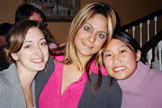 There have been more than a few big surprises in Canadian federal politics over the past year. And, as unlikely as it may seem at the moment, the current Liberal leadership race could prove surprising too. Just how bad the Ontario-dominated crop of 11 “B-team” contenders looks depends on how you see the main objective for the forces of progress in the next federal election.
There have been more than a few big surprises in Canadian federal politics over the past year. And, as unlikely as it may seem at the moment, the current Liberal leadership race could prove surprising too. Just how bad the Ontario-dominated crop of 11 “B-team” contenders looks depends on how you see the main objective for the forces of progress in the next federal election.
If you think the Liberals actually have to win, and return as Canada’s so-called natural governing party, then the motley Group of 11 probably is somewhat depressing. But if you think that all they really have to do is meet the minimum objective of preventing Stephen Harper’s Conservatives from winning a majority government, the picture starts to look brighter. And it now seems quite arguable that for the longer-term interests of the progressive cause due north of the USA today, the minimum objective is the one that counts.
Political realism and what’s best for the country right now
 There are at least two good enough reasons for buying into the minimum objective – even if no staunch Liberal Party of Canada partisan will of course accept this notion for public consumption.
There are at least two good enough reasons for buying into the minimum objective – even if no staunch Liberal Party of Canada partisan will of course accept this notion for public consumption.
The first is raw political realism. According to Geoffrey Stevens, e.g., a former managing editor of the Globe and Mail, “Stephen Harper is on a roll.” Like it or not, what the father of modern political science Niccolo Machiavelli called fortuna is smiling on the new prime minister. His slender minority government probably has as much as two years to “establish the Conservatives as the dominant party” in Quebec and “win a majority without Ontario” in the next election. “That feat, which seemed absurdly impossible just a few months ago, now seems doable.”
A stable Conservative majority of seats in the next parliament may not exactly prove doable in the end. But on current understandings of the new federal political reality, the Liberals, no matter who is leading them, will be in no position to actually win the next election themselves. For the time being the most they can hope for is to hold Stephen Harper – and all his increasingly clear schemes for a quite different kind of more backward-looking Canada – to something like the Conservative minority government the country has right now.
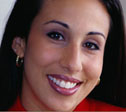 As is often said, as little as a week can be a long time in politics. There are assorted good reasons for hoping that the fortuna smiling on Stephen Harper in the spring of 2006 will not last as long as the next election, whenever it comes. But with his first 100 days under his belt he has had a long enough string of striking good luck, aided and abetted by his own clever management, to make this appear a dim prospect at the moment.
As is often said, as little as a week can be a long time in politics. There are assorted good reasons for hoping that the fortuna smiling on Stephen Harper in the spring of 2006 will not last as long as the next election, whenever it comes. But with his first 100 days under his belt he has had a long enough string of striking good luck, aided and abetted by his own clever management, to make this appear a dim prospect at the moment.
The second point here is that even if Mr. Harper’s luck does not quite hold, it is arguable enough that it would be best for the country if he managed to hold onto his slender minority government in the next election. It is part of his current strength that he is carrying a torch for the regional aspirations of Western Canada, as well as the international ideological aspirations of early 21st century neo-conservatism. It will be better for Canada at large if these regional aspirations are not suddenly dashed – before the Liberals (and New Democrats?) have a chance to more fully integrate them into their own updated version of the Canadian body politic.
When you add to this the prospect that Stephen Harper just may have stumbled into some role as the facilitator of a new post-sovereigntist rapprochement between the francophone majority in Quebec and the anglophone majority in the rest of the country, the case for giving him somewhat longer than one short term as a minority prime minister of Canada becomes that much stronger.
The collective strengths of the motley Group of 11 …
 Viewed in the light of this realistic and even high-minded current minimum objective for the Liberals, the collective attractions of the 11 brave men and women who have put their bodies (and $50,000 entry fees) on the line, in the leadership race that will end in Montreal, November 29December 3, 2006, are impressive enough.
Viewed in the light of this realistic and even high-minded current minimum objective for the Liberals, the collective attractions of the 11 brave men and women who have put their bodies (and $50,000 entry fees) on the line, in the leadership race that will end in Montreal, November 29December 3, 2006, are impressive enough.
Taken together, the 11 candidates include representatives from both the Atlantic and Pacific coasts (Scott Brison from Nova Scotia, and Hedy Fry from BC). And there is at least one representative from French-speaking Quebec (Stephane Dion). One candidate was born and raised in the Prairie provinces of Western Canada (Gerard Kennedy from La Pas, Manitoba). And one candidate from Ontario has recently spent two years living in Calgary, and serving on the board of directors of the excellent Edmonton radio station, CKUA (Martha Hall Findlay).
Two candidates were born in Italy, though largely raised and educated in Ontario (Maurizio Bevilacqua and Joe Volpe). One was born in Trinidad (Hedy Fry). Three of the 11 candidates are women, and one is an openly gay male. The oldest candidate was born in 1941, and the youngest in 1967. Five candidates were born in the 1940s, two in the 1950s, and four in the 1960s.
 It is lamentably true enough that seven of the 11 candidates have spent most of their adult working careers in Ontario (including Gerard Kennedy from Manitoba). But two of the seven (again) were born in Italy. One (Ken Dryden) served “as goaltender for the Montreal Canadiens hockey team from 1971 to 1979, during which time the team went on to win six Stanley cups.” And one of the three candidates born in Toronto (Michael Ignatieff) has spent most of his adult working career outside Canada altogether (in the US and the UK).
It is lamentably true enough that seven of the 11 candidates have spent most of their adult working careers in Ontario (including Gerard Kennedy from Manitoba). But two of the seven (again) were born in Italy. One (Ken Dryden) served “as goaltender for the Montreal Canadiens hockey team from 1971 to 1979, during which time the team went on to win six Stanley cups.” And one of the three candidates born in Toronto (Michael Ignatieff) has spent most of his adult working career outside Canada altogether (in the US and the UK).
It is true as well that most of the 11 candidates have largely urban as opposed to rural backgrounds. But at least two (Scott Brison and Gerard Kennedy) grew up in more rural environments. (And then it is of course also quite true that Stephen Harper himself is almost exclusively a product of big-city life in Toronto and Calgary.)
Taken collectively at any rate, the 11 candidates who aspire to lead the new and re-energized Liberal Party of Canada that will come out of the Montreal convention at the end of this year represent a quite broad swath of the diverse new country that will be stepping into its own fresh destiny as the early 21st century continues to unfold. This may be the “B” team of the (somewhat discredited) old Liberal Party of the warring Martinites and Chretienites. But it is almost certainly more representative of the new Canada that lies ahead than such old “A” team candidates who declined to run as Frank McKenna and John Manley.
A very brief look at the Group of 11 individually (in alphabetical order) …
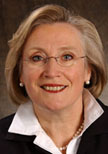 CAROLYN BENNETT. One of two female physicians in the race. Born in Toronto in 1950, she has represented the federal downtown riding of St. Paul’s in Ottawa since 1997. She has strong interests in social policy, and impresses many in her riding. A good addition to the new Liberal team, but almost certainly too downtown Toronto for an effective national leader.
CAROLYN BENNETT. One of two female physicians in the race. Born in Toronto in 1950, she has represented the federal downtown riding of St. Paul’s in Ottawa since 1997. She has strong interests in social policy, and impresses many in her riding. A good addition to the new Liberal team, but almost certainly too downtown Toronto for an effective national leader.
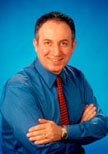 MAURIZIO BEVILACQUA. Born in Italy in 1960, but largely raised and educated in Canada, he is one proof of how well the older European-oriented multiculturalism has integrated into the inner suburbs of the Greater Toronto Area. He has won a public service award from the State of Israel Bonds Canada, and: “In recognition of his work advancing Canada/US relations, he was presented with the Key to the City of Dallas.” A long-shot for winning the leadership in the end, but another strong addition to the new team.
MAURIZIO BEVILACQUA. Born in Italy in 1960, but largely raised and educated in Canada, he is one proof of how well the older European-oriented multiculturalism has integrated into the inner suburbs of the Greater Toronto Area. He has won a public service award from the State of Israel Bonds Canada, and: “In recognition of his work advancing Canada/US relations, he was presented with the Key to the City of Dallas.” A long-shot for winning the leadership in the end, but another strong addition to the new team.
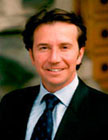 SCOTT BRISON. The youngest of the leadership candidates – born in 1967 in Windsor, Nova Scotia. He started his career in Ottawa as an old Progressive Conservative, but moved to the Liberals because he felt uncomfortable in Stephen Harper’s more neo-con new Conservative Party of Canada. He won admiration for his stand-up performance in overwrought parliamentary debates sparked by Conservative exaggerations on the Gomery inquiry. Openly gay, and an impressive representative for the most forward-looking sides of Atlantic Canada today.
SCOTT BRISON. The youngest of the leadership candidates – born in 1967 in Windsor, Nova Scotia. He started his career in Ottawa as an old Progressive Conservative, but moved to the Liberals because he felt uncomfortable in Stephen Harper’s more neo-con new Conservative Party of Canada. He won admiration for his stand-up performance in overwrought parliamentary debates sparked by Conservative exaggerations on the Gomery inquiry. Openly gay, and an impressive representative for the most forward-looking sides of Atlantic Canada today.
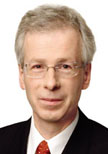 STEPHANE DION. Someone from French-speaking Quebec had to run, and the brainy federalist son of the old Quebec nationalist Leon Dion is a good choice – even if it is nowadays said that he is not all that popular in Quebec itself. He holds a PhD in sociology from the Institut d’tudes politiques in Paris, and served as Paul Martin’s Minister of the Environment. He currently serves as the opposition Liberals’ Foreign Affairs Critic. He is admirably high-minded and a strong believer in a strong Quebec inside a strong Canada.
STEPHANE DION. Someone from French-speaking Quebec had to run, and the brainy federalist son of the old Quebec nationalist Leon Dion is a good choice – even if it is nowadays said that he is not all that popular in Quebec itself. He holds a PhD in sociology from the Institut d’tudes politiques in Paris, and served as Paul Martin’s Minister of the Environment. He currently serves as the opposition Liberals’ Foreign Affairs Critic. He is admirably high-minded and a strong believer in a strong Quebec inside a strong Canada.
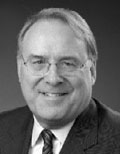 KEN DRYDEN. The Montreal Canadiens’ old Stanley-cup-winning goalie of the 1970s was actually born in Hamilton, Ontario in 1947, and currently represents the northern City of Toronto suburban riding of York Centre in the federal Parliament. His French is not as good as Stephen Harper’s, and he is perceived as something of a plodder in politics. But, like John Manley before him, he has quietly let it be known that he supports the polite abandonment of the British monarchy in Canada, in the fullness of time – and this could be an important wedge issue for the Liberals a bit down the road (that just might nicely divide and conquer the Harper Conservatives). He is not without other quiet attractions as well, and in an 11-person race he could look stronger at the finish than he does at the start.
KEN DRYDEN. The Montreal Canadiens’ old Stanley-cup-winning goalie of the 1970s was actually born in Hamilton, Ontario in 1947, and currently represents the northern City of Toronto suburban riding of York Centre in the federal Parliament. His French is not as good as Stephen Harper’s, and he is perceived as something of a plodder in politics. But, like John Manley before him, he has quietly let it be known that he supports the polite abandonment of the British monarchy in Canada, in the fullness of time – and this could be an important wedge issue for the Liberals a bit down the road (that just might nicely divide and conquer the Harper Conservatives). He is not without other quiet attractions as well, and in an 11-person race he could look stronger at the finish than he does at the start.
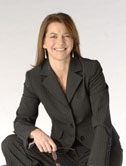 MARTHA HALL FINDLAY. An activist lawyer and former skiing champion who has never quite been elected to any political office, she stands for the potential quiet new populism of the post Martinite-Chretienite Liberals. Her earlier and current Toronto residence has been broadened by sojourns in both rural Ontario and Calgary, Alberta. It would be astounding if she actually won the leadership, but her presence in the race suggests that a new kind of Liberal Party of Canada could conceivably be in the works.
MARTHA HALL FINDLAY. An activist lawyer and former skiing champion who has never quite been elected to any political office, she stands for the potential quiet new populism of the post Martinite-Chretienite Liberals. Her earlier and current Toronto residence has been broadened by sojourns in both rural Ontario and Calgary, Alberta. It would be astounding if she actually won the leadership, but her presence in the race suggests that a new kind of Liberal Party of Canada could conceivably be in the works.
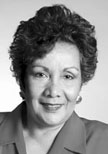 HEDY FRY. The other female physician, and the oldest candidate – born in 1941. It would also be astounding if she won, but it is certainly a good thing that she’s in the race. She crucially represents both the feisty new non-European (or so-called “visible minority”) wave of Canadian multiculturalism, and (for the Liberals) the crucial lotus land of beautiful BC and the Pacific Coast. She has been the federal MP for Vancouver Centre since 1993: “Her priorities include tourism and the burgeoning film industry, promoting our diversity of cultures and peoples, and ensuring the sustainability and empowerment of our expanding urban centers.”
HEDY FRY. The other female physician, and the oldest candidate – born in 1941. It would also be astounding if she won, but it is certainly a good thing that she’s in the race. She crucially represents both the feisty new non-European (or so-called “visible minority”) wave of Canadian multiculturalism, and (for the Liberals) the crucial lotus land of beautiful BC and the Pacific Coast. She has been the federal MP for Vancouver Centre since 1993: “Her priorities include tourism and the burgeoning film industry, promoting our diversity of cultures and peoples, and ensuring the sustainability and empowerment of our expanding urban centers.”
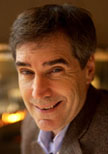 MICHAEL IGNATIEFF. Son of the distinguished Canadian diplomat George Ignatieff, and former director of the Carr Centre for Human Rights and Policy at Harvard University. Though born in Toronto, in 1947, he has spent most of his adult working life outside Canada. Despite being first elected to Parliament as recently as this past January 23, he is considered by some the current front runner. And he does have the declared support of more federal Liberal MPs than anyone else at the moment (17). In recent parliamentary debate he has clearly shown what William Buckley in the USA used to call “gravitas.” Both his practical political inexperience and his support for the US War in Iraq still seem to make him an unlikely victor in the end. But without any doubt he adds some kind of international class and intellectual distinction to the race.
MICHAEL IGNATIEFF. Son of the distinguished Canadian diplomat George Ignatieff, and former director of the Carr Centre for Human Rights and Policy at Harvard University. Though born in Toronto, in 1947, he has spent most of his adult working life outside Canada. Despite being first elected to Parliament as recently as this past January 23, he is considered by some the current front runner. And he does have the declared support of more federal Liberal MPs than anyone else at the moment (17). In recent parliamentary debate he has clearly shown what William Buckley in the USA used to call “gravitas.” Both his practical political inexperience and his support for the US War in Iraq still seem to make him an unlikely victor in the end. But without any doubt he adds some kind of international class and intellectual distinction to the race.
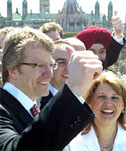 GERARD KENNEDY. Born and raised in La Pas, Manitoba, where his father was an active Liberal, and just recently resigned as Dalton McGuinty’s able Minister of Education in Ontario provincial politics. He is only 45, and was educated at Trent University in Ontario and the University of Alberta in Edmonton. He was “the first executive director of the Edmonton Food Bank, Canada’s first such organization, from 1983 to 1986,” and then went on to serve as executive director of the Toronto Daily Bread Food Bank from 1986 to 1996, when he was first elected to the Ontario Legislative Assembly. He is said to have the capacity to inspire those who work with him, and currently has the support of the second largest number of federal Liberal MPs (11). His French apparently still needs work, and he did not impress the Ottawa press corps when he first appeared before them recently. But on paper he has more attractions than many in the race. His big challenge will be to convert these paper attractions into something that convention delegates can sink their teeth into in Montreal this coming December.
GERARD KENNEDY. Born and raised in La Pas, Manitoba, where his father was an active Liberal, and just recently resigned as Dalton McGuinty’s able Minister of Education in Ontario provincial politics. He is only 45, and was educated at Trent University in Ontario and the University of Alberta in Edmonton. He was “the first executive director of the Edmonton Food Bank, Canada’s first such organization, from 1983 to 1986,” and then went on to serve as executive director of the Toronto Daily Bread Food Bank from 1986 to 1996, when he was first elected to the Ontario Legislative Assembly. He is said to have the capacity to inspire those who work with him, and currently has the support of the second largest number of federal Liberal MPs (11). His French apparently still needs work, and he did not impress the Ottawa press corps when he first appeared before them recently. But on paper he has more attractions than many in the race. His big challenge will be to convert these paper attractions into something that convention delegates can sink their teeth into in Montreal this coming December.
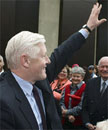 BOB RAE. The 57-year-old former first New Democratic Premier of Ontario (19901995) is sometimes said to be the new federal Liberal leader that the Harper Conservatives would most like to run against in the next election. Even allowing for the tough economic times of the early 1990s, the “baggage” of his notoriously flawed Ontario NDP provincial government arguably enough will make him an unlikely winner in the end. But his former NDP background does make him a valuable candidate, at a time when some kind of Liberal-New Democrat rapprochement will almost certainly be one pre-requisite for a longer-term resurgence of the progressive cause in Canadian politics. For students of political gossip, Bob Rae and Michael Ignatieff have also been friends since their student days. Even if neither wins, both could add a lot to some federal Liberal leadership team of the future.
BOB RAE. The 57-year-old former first New Democratic Premier of Ontario (19901995) is sometimes said to be the new federal Liberal leader that the Harper Conservatives would most like to run against in the next election. Even allowing for the tough economic times of the early 1990s, the “baggage” of his notoriously flawed Ontario NDP provincial government arguably enough will make him an unlikely winner in the end. But his former NDP background does make him a valuable candidate, at a time when some kind of Liberal-New Democrat rapprochement will almost certainly be one pre-requisite for a longer-term resurgence of the progressive cause in Canadian politics. For students of political gossip, Bob Rae and Michael Ignatieff have also been friends since their student days. Even if neither wins, both could add a lot to some federal Liberal leadership team of the future.
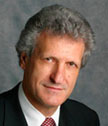 JOE VOLPE. If the new Liberal leader is going to be a Canadian of Italian descent, it will most likely be Joe Volpe from Eglinton-Lawrence in the City of Toronto, rather than Maurizio Bevilacqua from Vaughan-King-Aurora in the inner suburbs of the GTA. A former school principal, Joe Volpe has held a seat in the Canadian House of Commons since as long ago as 1988. He is also “the former Co-Chair of the Canada-China Legislative Association, and the former Chair of the Canada-China Parliamentary Friendship Group.” He currently has the declared support of the third largest number of federal Liberal MPs (7), considerable organizing ability, and a long list of favors to call in. He is said to be another contender who, in an 11-person race, could look stronger at the finish than he does at the start.
JOE VOLPE. If the new Liberal leader is going to be a Canadian of Italian descent, it will most likely be Joe Volpe from Eglinton-Lawrence in the City of Toronto, rather than Maurizio Bevilacqua from Vaughan-King-Aurora in the inner suburbs of the GTA. A former school principal, Joe Volpe has held a seat in the Canadian House of Commons since as long ago as 1988. He is also “the former Co-Chair of the Canada-China Legislative Association, and the former Chair of the Canada-China Parliamentary Friendship Group.” He currently has the declared support of the third largest number of federal Liberal MPs (7), considerable organizing ability, and a long list of favors to call in. He is said to be another contender who, in an 11-person race, could look stronger at the finish than he does at the start.
A new kind of Liberal Party of Canada for new times?
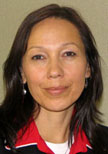 In the midst of all the current hyperbole about both the striking good luck and clever management of the new Harper Conservatives, it is almost easy to forget that in the January 23, 2006 federal election they won only a bit better than 36% of the cross-Canada popular vote and 124 of 308 seats in the Canadian House of Commons in Ottawa – even with the Gomery inquiry into the Quebec sponsorship scandal and all that.
In the midst of all the current hyperbole about both the striking good luck and clever management of the new Harper Conservatives, it is almost easy to forget that in the January 23, 2006 federal election they won only a bit better than 36% of the cross-Canada popular vote and 124 of 308 seats in the Canadian House of Commons in Ottawa – even with the Gomery inquiry into the Quebec sponsorship scandal and all that.
It is said that the Canadian electorate has been impressed by the decisive way that Stephen Harper has been handling his new career as minority prime minister of Canada. But what some see as decisiveness others see as bullying. The recent narrow 149-145 parliamentary vote on Mr. Harper’s two-year extension of the Canadian mission in Afghanistan suggests that he still suffers from a tendency to be too clever by half. All the current Liberal MP leadership candidates except for Michael Ignatieff and Scott Brison voted against the extension. And this quite arguably suggests that neither is likely to finally win the leadership contest early this coming December, more than it suggests some fatal division on war and peace inside the Liberal ranks.
Mr. Harper’s subsequent feting of Australian prime minister John Howard in Ottawa shortly after the Afghanistan vote may also have helped start clarifying just how challenging his neo-con struggle to re-shape Canada into the place of his dreams is going to be. The Canada that exists down on the ground right now, coast to coast to coast, will have to change a lot to become anything quite like John Howard’s backward-looking Australia. And there are various kinds of evidence that suggest the change will not just be resisted in Dalton McGuinty’s most populous province of Ontario (which does remain home to some 39% of all Canadians, even in a country led by the New West in alliance with some kind of New Quebec).
 The changing Liberal Party of Canada almost certainly does need to learn a few new things from Mr. Harper on Senate reform, and perhaps even on the changing mood in Quebec. The Liberals and the New Democrats collectively without doubt do need to come to some kind of fresh understanding about the future of the progressive cause in Canada. (And there is as yet very little to suggest that the New Democrats are ready to grapple with their fresh challenges here.)
The changing Liberal Party of Canada almost certainly does need to learn a few new things from Mr. Harper on Senate reform, and perhaps even on the changing mood in Quebec. The Liberals and the New Democrats collectively without doubt do need to come to some kind of fresh understanding about the future of the progressive cause in Canada. (And there is as yet very little to suggest that the New Democrats are ready to grapple with their fresh challenges here.)
Yet, whatever else, the Liberal Party of Canada that comes out of its Montreal leadership convention this December is not going to be the same party that rather haphazardly governed Canada from 1993 to early 2006 – and that finally did come crashing down, somewhat, in the wake of the Quebec sponsorship scandal.
Stephen Harper’s throne speech and his first budget were quite clever, and even shrewdly moderate. But by moving as precipitously as he already has on such issues as Afghanistan, aboriginal policy, the environment, and perhaps even the long-gun registry, the new minority Conservative prime minister has arguably already opened up some fresh ground on which a new and resurgent Canadian liberalism can start to grow.
When you look into it a bit more deeply, at any rate, the Group of 11 presents an impressive enough array of political talent that, beneath its surface of too many Ontarians, does at least start to reach out to all geographic parts and demographic sectors of the country. As matters do seem to stand at the moment, even the new Liberals will probably not be ready to actually win the next federal election, in any sense that matters. But they could show enough fresh strength in all of Atlantic Canada (still the most rural part of the country statistically), anglophone Central Canada, and Pacific Canada (and far Northern Canada too), to rob Mr. Harper of the majority government he so desperately seems to want at the moment.
 That just might set the stage for a more forward-looking new Canada, that no one political party and no one leader altogether dominates in some obsolete autocratic way. (And this still does seem the kind of new Canada that the Canadian people, collectively, really want – and have now democratically voted for in two successive federal elections.) For independent-minded partisans of the progressive cause there are still a few good reasons to remember Jesse Jackson’s very best old advice from the USA: “keep hope alive.” Mr. Harper’s Conservatives have not quite conquered all of Canada yet.
That just might set the stage for a more forward-looking new Canada, that no one political party and no one leader altogether dominates in some obsolete autocratic way. (And this still does seem the kind of new Canada that the Canadian people, collectively, really want – and have now democratically voted for in two successive federal elections.) For independent-minded partisans of the progressive cause there are still a few good reasons to remember Jesse Jackson’s very best old advice from the USA: “keep hope alive.” Mr. Harper’s Conservatives have not quite conquered all of Canada yet.
